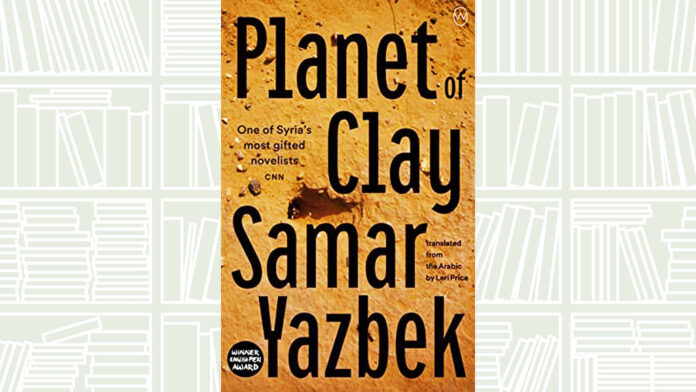CHICAGO: A finalist for the 2021 National Book Award for Translated Literature, journalist and novelist Samar Yazbek’s “Planet of Clay” is a first-person account of Rima Salem Al-Mahdawy who is living through the Syrian war.
Born and raised in Damascus, Rima cannot speak but has an innate instinct to walk. For her own safety, however, she is always tied to a person or object. When the landscape around Syria begins to changes, with new checkpoints, anti- and pro-government protests in the streets, and a siege, her constraints become a danger to her and those around her. The world is large and confusing, the people she loves: Her mother, brother, and Sitt Souad, are few in number and they keep disappearing. Translated into English by Leri Price, Rima’s story is one of coping, of fantasy, and of miscommunications.
Readers meet Rima as she writes a diary of her life in a cellar. She remembers her past with her mother and brother in Damascus all the way to Douma. She has always been different and people confuse her for being mentally unstable instead of trying to understand her. Just like “The Little Prince,” Rima’s has fragmented her life into secret worlds: Her house in the Jaramana Camp in southern Damascus, the school library where Sitt Souad teaches her everything she knows, the house between Zamalka and Ghouta with her brother Saad, and Douma with Hassan.
Rima’s account is overwhelmingly isolated, an impending doom hovers overhead like the planes and the bombs that they drop. Rima writes to drown out the sounds of war, dealing with trauma in the midst of it. There is a feeling of the temporary and transient, as if life will vanish and the story will end at any moment, even before the reader can understand what is happening, even before the narrator knows the end. Yazbek gives a hauntingly realistic account of life being preserved by paper, to be witnessed instead of lived.
The things Rima sees, the violence of war and desperation, the siege, the anti-governmental protests her brother frequents and her mother cries about, the adults who are tried for treason and the children caught in the aftermath, are all a mystery to her. Here, children are forced to grow up fast and run from death. To remember her past, she must relive her trauma that is embedded in the people and places she loves. Dealing with themes that are close to the author’s heart, Yazbek brilliantly weaves a story about freedom and of heartbreak during wartime.

